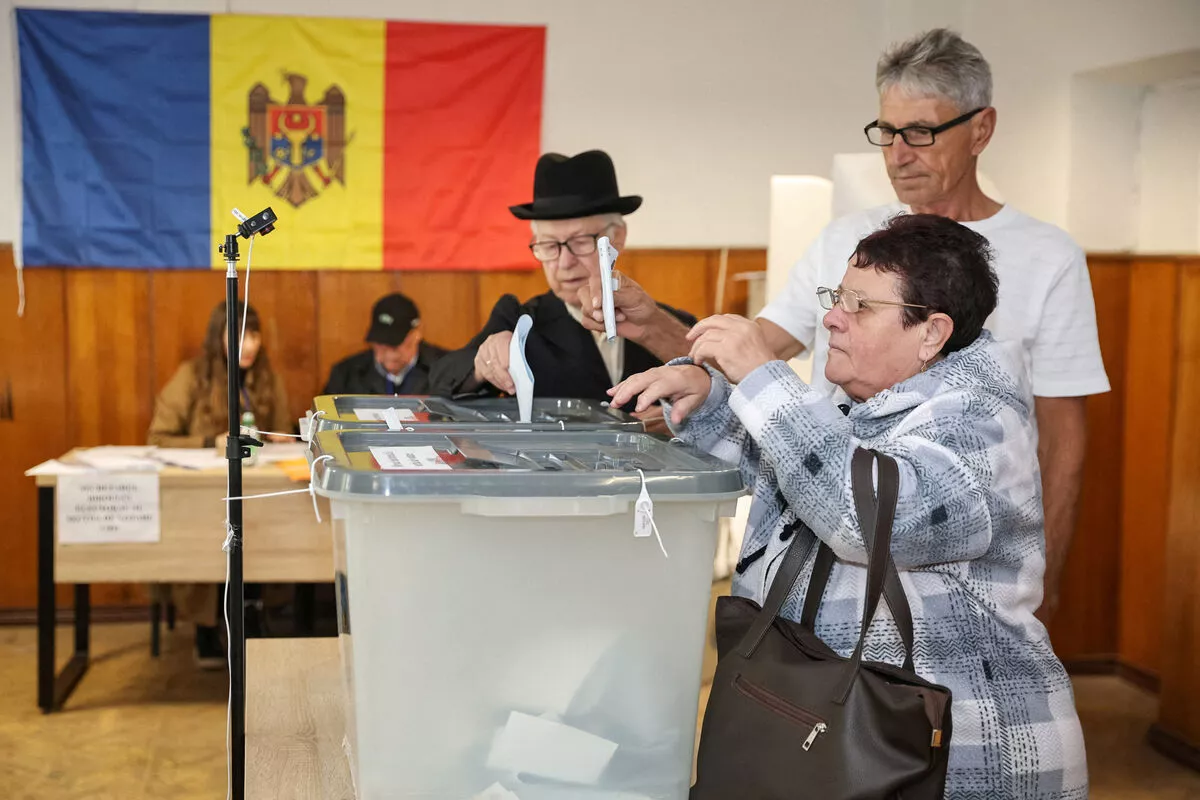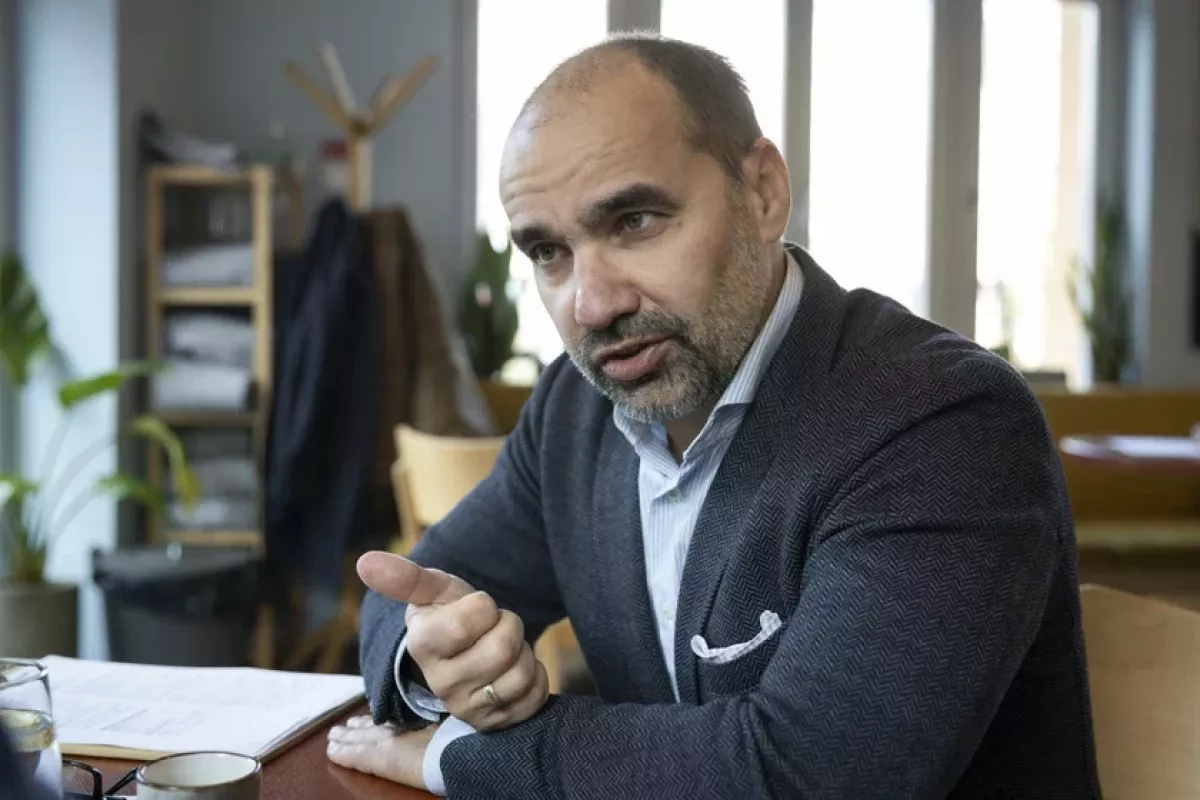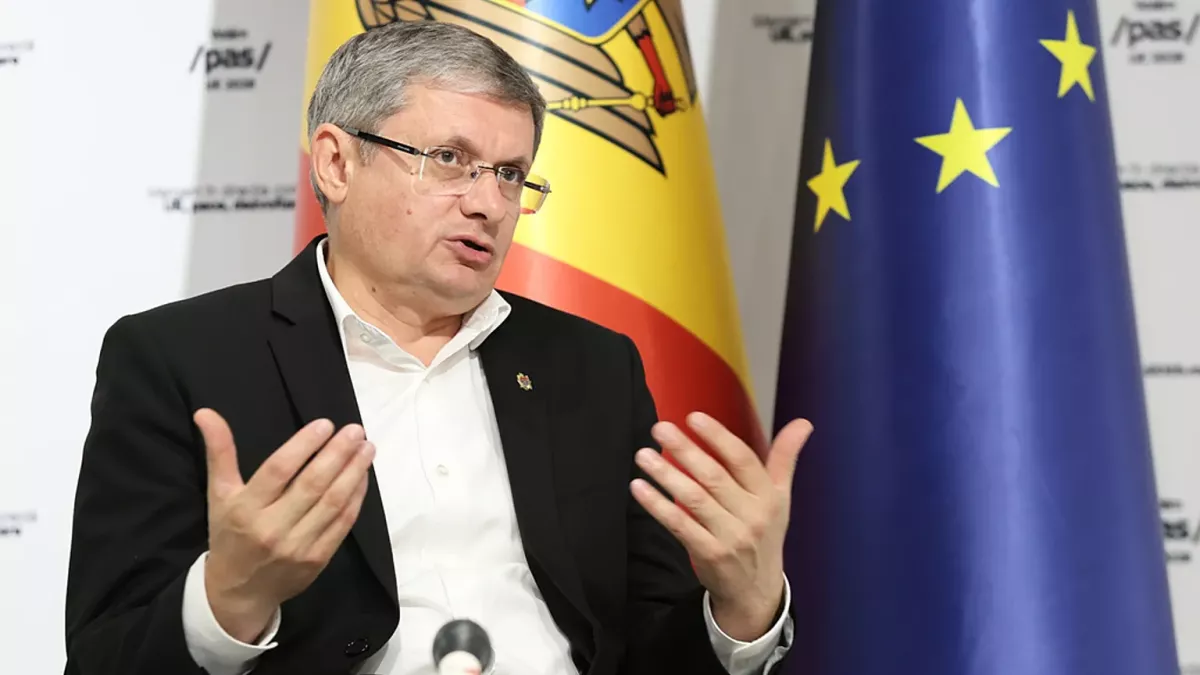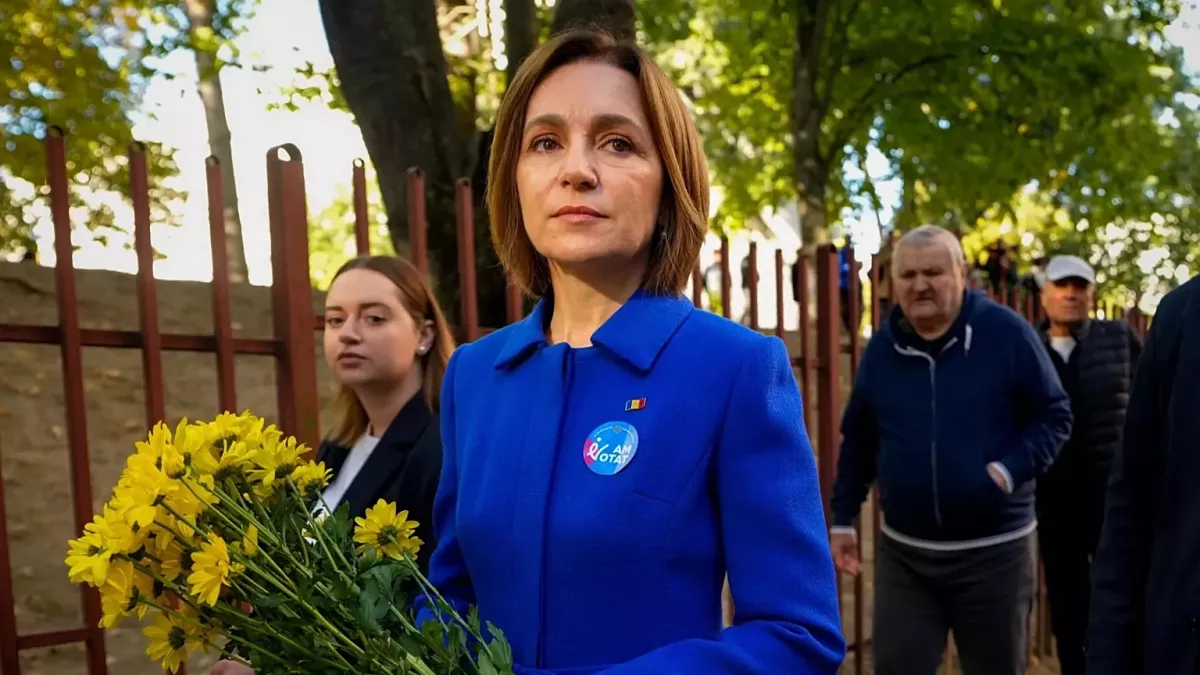Moldova between Brussels and Moscow A geopolitical tug-of-war
The main outcome of the recent parliamentary elections in Moldova is that the country is struggling to cope with the challenge of total geopoliticization of virtually all aspects of its domestic politics. This is a huge problem for a small country located in a geopolitical borderland. If a country, its government, and its elites allow the outside world to perceive it only through a geopolitical lens, that is exactly how everyone around will view it.
Parliamentary elections were held in Moldova on 28 September. In terms of media and political intensity, as well as the level of international attention, few other election campaigns in the post-Soviet space over the past decades can compare with Moldova’s 2025 campaign.
Pervasive geopoliticization
Both within Moldova and beyond its borders, this election campaign was perceived as particularly significant—even historic. Not only journalists but numerous officials explicitly called it a decisive stage in the struggle over the country’s geopolitical future. The atmosphere and sentiment around the elections can be gauged from headlines in leading Western media: “Moldova holds key election as Russia's shadow looms large,” “Moldova’s election is a choice between two paths: pro-Europe or pro-Russia,” “E.U. and Russia battle over Moldova’s future as elections loom,” “Moldova warns Russia unleashing huge interference campaign to sway crucial election,” and so on.

A separate storyline concerned accusations against Moscow regarding the mass recruitment of Orthodox priests in Moldova to influence voters in favour of Russia-friendly political forces. There were also claims that Moscow planned to deploy an additional 10,000 troops to Transnistria to further destabilise the region.
Similar notes appeared in Russian media, but with accusations directed at Western countries, alleging their interference in the elections and intentions to help the current Moldovan authorities falsify the results. Particular emphasis was placed on the fact that the OSCE Office for Democratic Institutions and Human Rights (ODIHR) did not allow a single Russian representative to observe the election process. Moldovan authorities themselves also did not invite Russian observers. Journalists frequently cited the Russian Foreign Intelligence Service (SVR), which claimed that NATO forces had been stationed in neighbouring Romania, ready to enter Moldova in case of unrest and even occupy the country.
As a result of such extensive information coverage from various sides, Moldovan society approached the elections in an extremely charged state. Political opponents accused each other of wanting to sell the country to enemies, labelling each other as agents of foreign powers—sometimes the Kremlin, sometimes Brussels and Washington.
Just a week before the elections, Moldovan law enforcement conducted around 250 raids and detained dozens of citizens suspected of planning mass unrest after the polls closed. The Central Electoral Commission barred several opposition political parties from participating. They were accused of illegally receiving funding from undeclared foreign sources and of bribing voters. Shortly before election day, the country’s president, Maia Sandu, addressed the nation, warning that Moldova faced serious danger and could be drawn into armed conflict.

As analyst Balazs Jarabik noted back in August, the context of the Russia–Ukraine war has fundamentally altered domestic norms in Moldova and across Eastern Europe. As a result, “real and perceived threats from Moscow are increasingly used to justify any political decisions, whether right or wrong.”
Opposition parties and blocs, in turn, accused the Moldovan authorities of exploiting the external enemy factor to divert public attention from economic and social problems. They also pointed out that leaders of European states were openly siding with the ruling Party of Action and Solidarity (PAS), interfering in Moldova’s internal affairs.
In the weeks leading up to the vote, several high-profile European politicians visited Moldova, including European Commission President Ursula von der Leyen, European Council President António Costa, the presidents of France and Romania, Emmanuel Macron and Nikușor Dan, German Chancellor Friedrich Merz, Polish Prime Minister Donald Tusk, and others. They urged Moldovans to support Maia Sandu’s party in the elections.
Moreover, Canada, Romania, Poland, and several other EU countries even imposed sanctions on certain Moldovan opposition politicians. Officials from the ruling Moldovan government used this to emphasise the high likelihood of negative scenarios in relations with the EU should they lose the elections. In particular, they warned of potential suspension of financial aid and border closures by the EU if opposition forces emerged victorious in the parliamentary race.
Overall, Moldovan authorities and their Western supporters made it clear that the central question of these parliamentary elections was whether the country would continue on its path toward EU accession. They assumed that the future parliament and the government it forms would have to make a number of important decisions in this regard.

As the head of the ruling Party of Action and Solidarity (PAS), Igor Grosu, repeatedly emphasised, “The results of these elections will define the country’s future not just for the next four years, but for many, many years ahead.”
First official results
Of course, statements about the historic significance of these elections and their decisive role in Moldova’s long-term development largely reflect pre-election rhetoric. It is clear that for a small country like Moldova, these trajectories will depend far less on the composition and geopolitical preferences of the future parliament and government than on broader developments across the entire Eastern European region and the state of security in Europe.
At the same time, it is obvious that the next government will indeed face numerous difficult decisions amid an increasingly tense regional situation and deep domestic challenges. One example alone is the need to define the future of Moldova’s constitutionally enshrined neutral status.
According to preliminary results, after nearly 100% of ballots were counted, the ruling PAS emerged as the winner. It received roughly half of the votes; the most recent data show its support slightly exceeded the 50% mark. With this outcome, the party will secure 54 of the 101 parliamentary seats—7 fewer than it held in the outgoing legislature.
The main competitors, the Patriotic Bloc, garnered around 25% of the vote, translating into 27 parliamentary seats. This bloc unites the Socialist Party, led by former president Igor Dodon, and the Communist Party, led by another former president, Vladimir Voronin. The third force in the bloc is the Future of Moldova Party, headed by former prime minister Vasile Tarlev. The Patriotic Bloc advocates for renewed active relations with Russia and does not support the EU integration ambitions of PAS.
Preliminary results place the Alternative bloc in third place. As the name suggests, its members advocate a kind of middle ground between the two political extremes represented by PAS and the Patriotic Bloc. In particular, they support further EU integration while also calling for more constructive cooperation with Russia.
Judging by the available results, the ruling party, although confirming a very solid level of support, is unlikely to be entirely satisfied due to a decrease compared to previous elections. Another significant vulnerability is that the decisive factor in these results is the overwhelming support for PAS among the diaspora.

Of approximately 3.3 million eligible voters, more than 500,000 live outside the country. The vast majority are in Europe (voting opportunities for Moldovan citizens in Russia were severely limited) and vote for Maia Sandu and her allies. Within the country itself, the party enjoys lower popularity.
This is a sensitive issue not only for the ruling party but for the country as a whole, as it highlights fault lines that are particularly acute for a small society. Similar divisions are evident due to the stark differences in political preferences across different regions of the country.
The worst-case scenario
However, as strange as it may sound, the numerical outcome of the vote is far from the most important aspect of the Moldovan elections. Regardless of the composition of the next parliament and the new government, the election campaign demonstrated the worst-case scenario for the politics of a small country located in a geopolitical borderland.
There is a very simple and consistently reliable law in international relations: if a country, its government, and its elites allow the outside world to perceive it solely through a geopolitical lens, that is exactly how everyone else will view it. External actors will, in such a case, primarily shape their policies toward that country based on this geopolitical perspective.
If domestic political struggles in a country are framed around competing geopolitical vectors, and domestic actors seek support not so much from society as from foreign powers, then foreign actors respond accordingly. They inevitably begin to play an active role in the country’s internal politics, exacerbating major geopolitical contradictions. The result is what is called the “proxying” of internal conflict, where external powers compete with each other and advance their geopolitical interests within the domestic arena of a particular third state.
From the perspective of a small country like Moldova, nothing could be worse or more dangerous. Therefore, the task of national elites in such geopolitically “middle-ground” states is always to prevent such confrontations from arising on their territory. In practice, however, the opposite often occurs, as the Moldovan case demonstrates. Elites (or, more accurately, those who call themselves elites) tend to use resources offered by external powers to fight domestic opponents rather than negotiate with them to ensure the long-term stability of their country.
As a result, the elites themselves help tear their country into geopolitical fragments. In the long term, this calls into question Moldova’s very ability to survive in an increasingly turbulent world. In the present moment, it determines the low effectiveness of both domestic and foreign policy. As classical theorists of international relations have long warned, the most reliable way to guarantee that a state will be unable to pursue a foreign policy fully aligned with its national interests is to undermine its domestic political cohesion.








